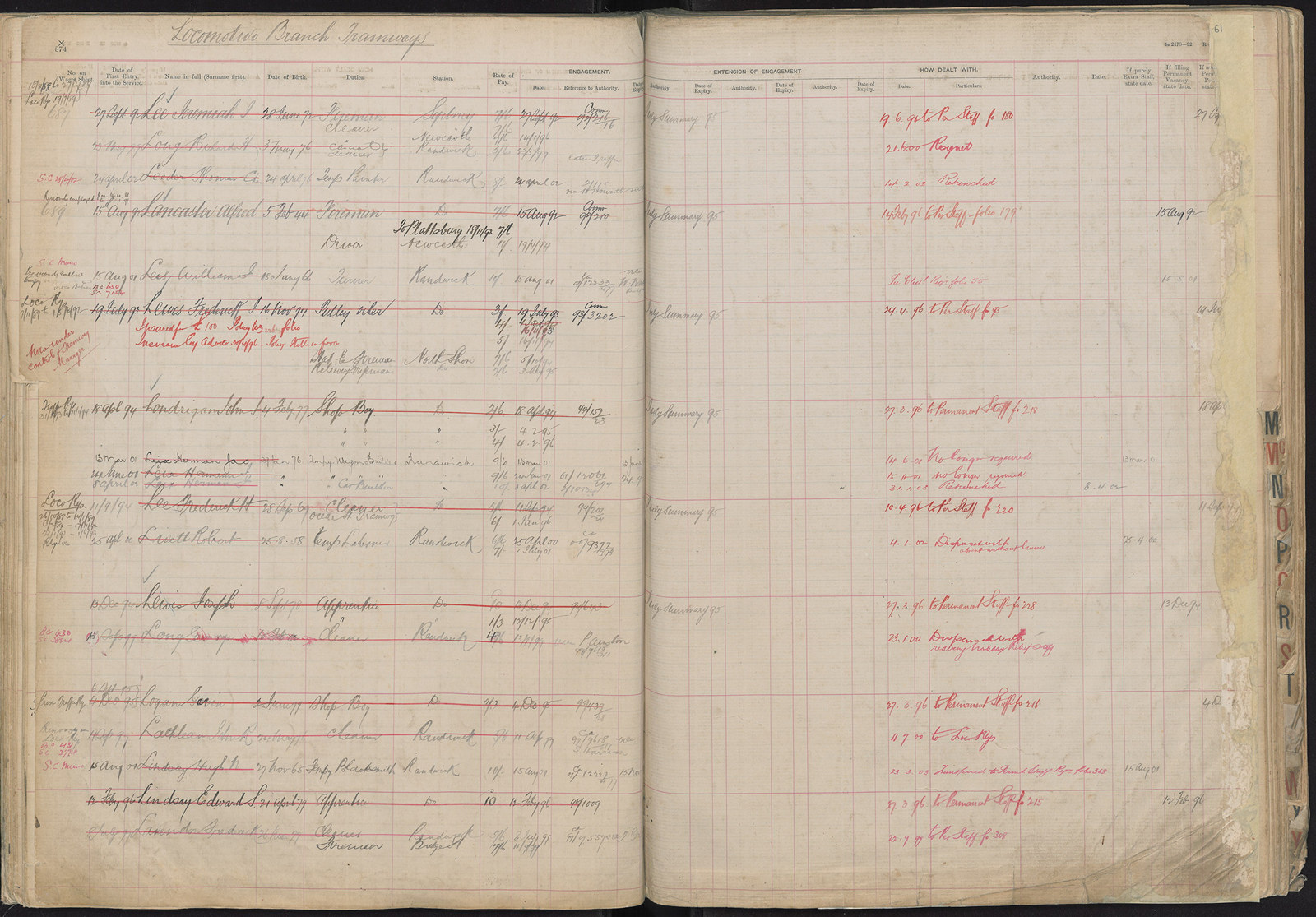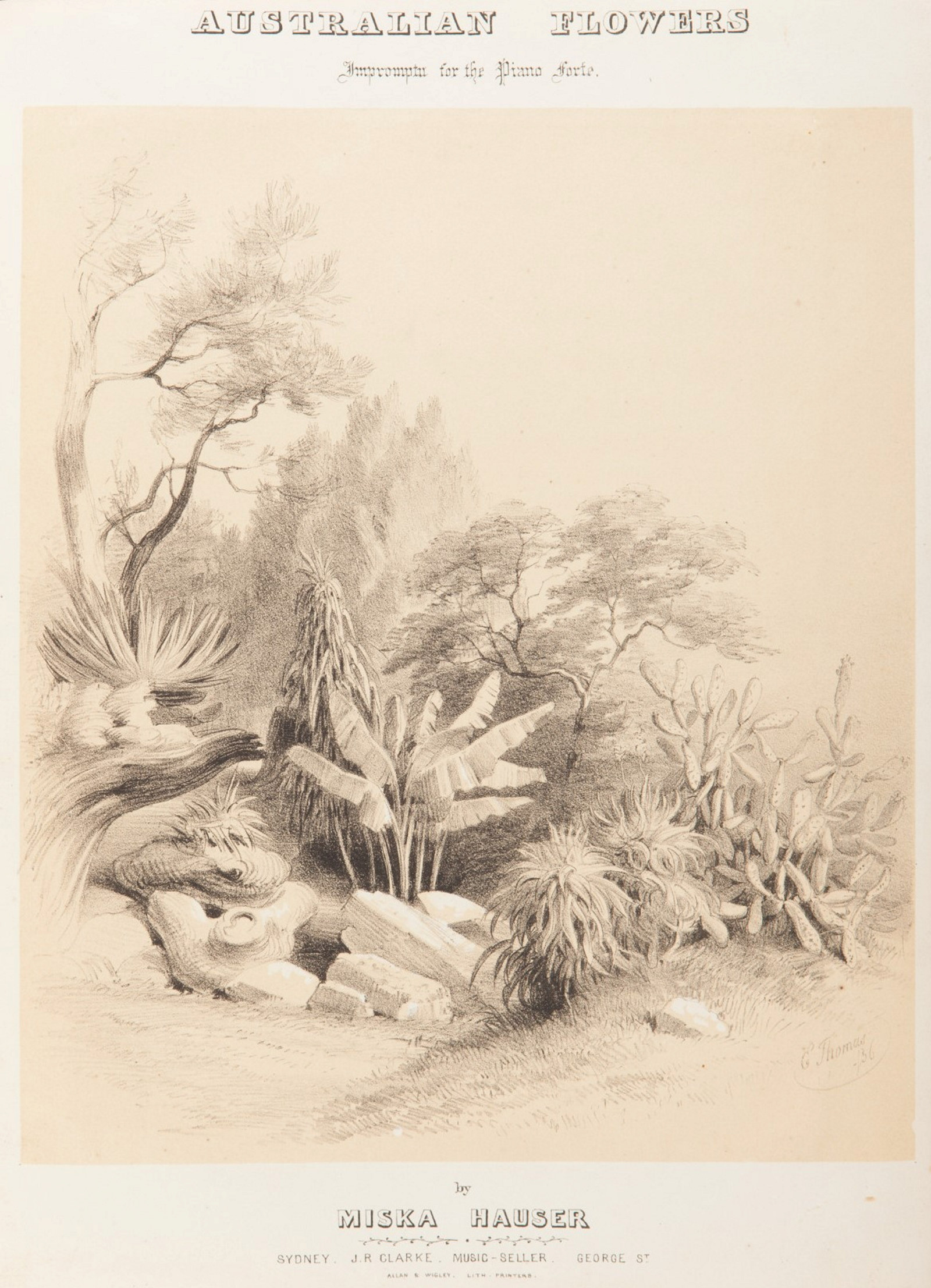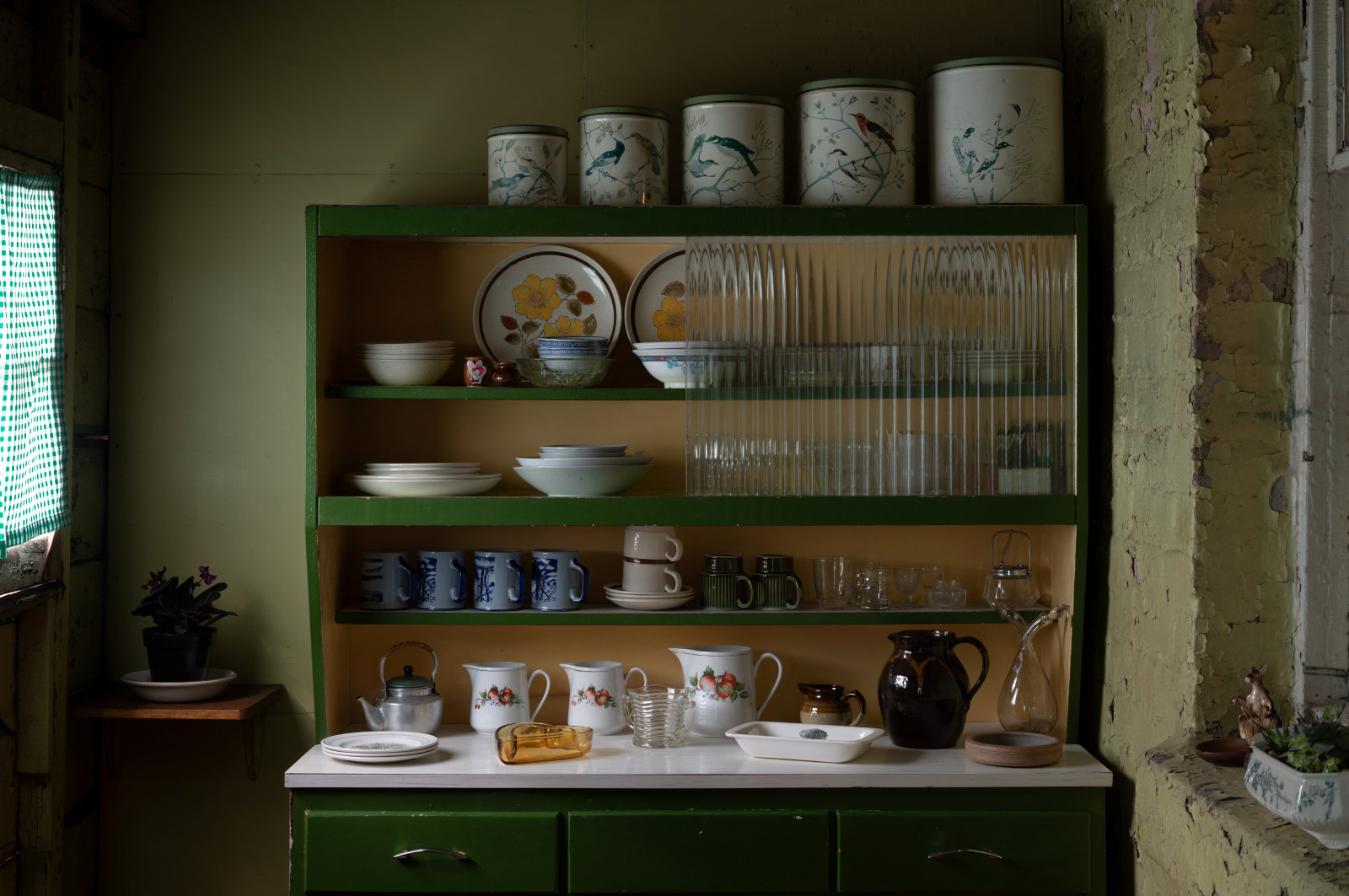Tramways guide
Government transport records
Tramway staff register, c.1879-1890 NRS 12918
This volume lists: name and position; date of first appointment to the service; date of present appointment; rate of pay; promotions; increases; fines, reprimands, and dismissals.
Registers of tramway employees in the Locomotive, Traffic, Permanent Way and Stores branches, c.1891-1911 NRS 12919
These registers give: name; position and station; date of birth; date of entry into service; insurance; staff or Board of Examiners certificate number; annual, weekly or daily rate; and remarks.
Tramways extra staff register, c.1892-1904 NRS 12920
A note in the front of the volume states that the register includes: men employed to fill vacancies on the permanent staff; men employed to fill permanent positions authorised by the commissioners; and temporary men (other than casual) employed for specific periods, sanctioned by the commissioners. The register is arranged alphabetically and provides the following information for each entry: number on wages sheet; date of first entry into service; name in full; date of birth; duties; station; rate of pay; date of engagement; details of engagement and extension to engagement; and how dealt with.
Search the index

Tramway employees 1879-1911
Search 10,000+ staff entries and download the digitised records. This index covers c.1879 to 1911 and records name, service entry date and date of birth
Related
![Owner bound volume of assorted songs, in the collection of Rouse Hill House & Farm, 1850-1864. [music]](https://images.slm.com.au/fotoweb/embed/2023/10/615fb53b45ca4bfb8d979b01993be8c3.jpg)
‘Home! Sweet Home!’
It may come as a surprise that the expression ‘home, sweet home’ originates from a song title

'A most excellent brick house' Elizabeth Farm
Curator Dr Scott Hill explores some of the enduring mysteries buried in the architecture of Australia’s oldest surviving homestead

'Australian Flowers'
Given that much of the music played in Australia in the 19th century had been imported, one might ask what constituted an ‘Australian’ piece of music?

(Re)making a home
An evocative collection of household items belonging to the last tenants of Susannah Place